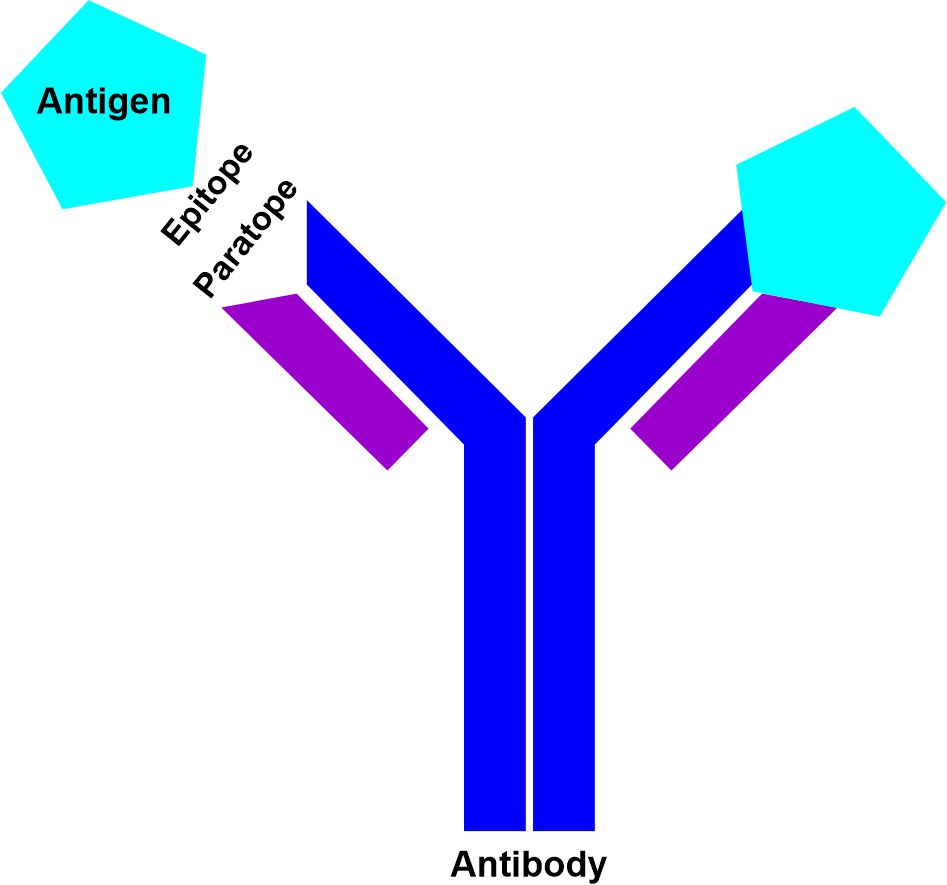¡Monoclonal antibodies, yes, and there are also polyclonal antibodies –
Part 6!
Between monoclonal and polyclonal, there are differences
An epitope is the specific area on the surface of an antigen that interacts with specific antibodies to which it binds. Typically, an antigen has several different epitopes. And a paratope is the specific binding site of the antibody to the epitope of its corresponding antigen.
When we add the topic of polyclonal antibodies, the concept of the epitope is already important. The figure shows the scheme of the recognition of an antigen by an antibody. The antigen with its epitope binding to the paratope is shown in light blue.


Polyclonal antibodies are a mixture of immunoglobulins, secreted against a specific antigen, each recognizing different epitopes.
There are differences between monoclonal and polyclonal antibodies. For example, polyclonal antibodies are produced using several different immune cells. They will have the affinity for the same antigen but different epitopes, while monoclonal antibodies are made using identical immune cells that are all clones of a specific parent cell.
In addition to monoclonal and polyclonal antibodies, there are also recombinant antibodies……
